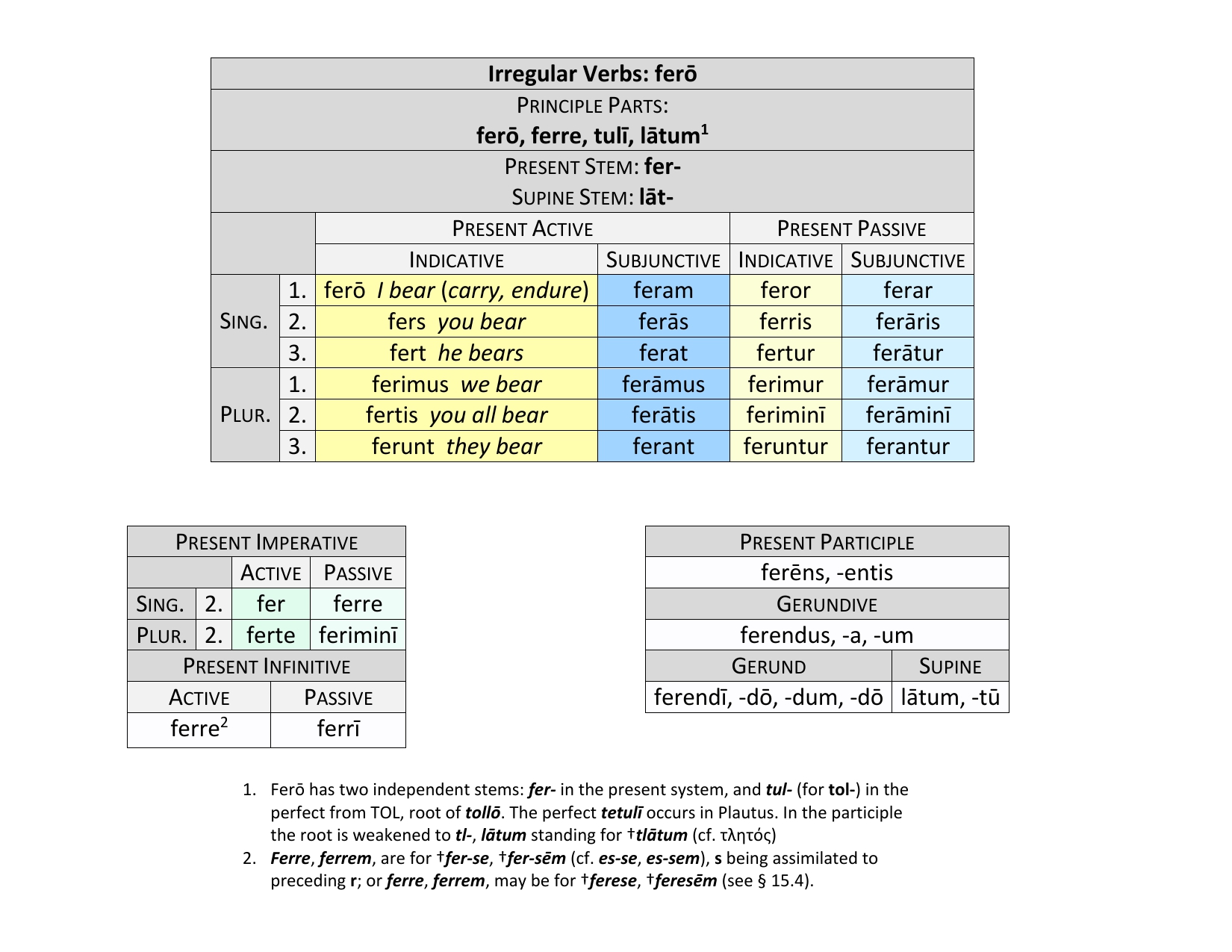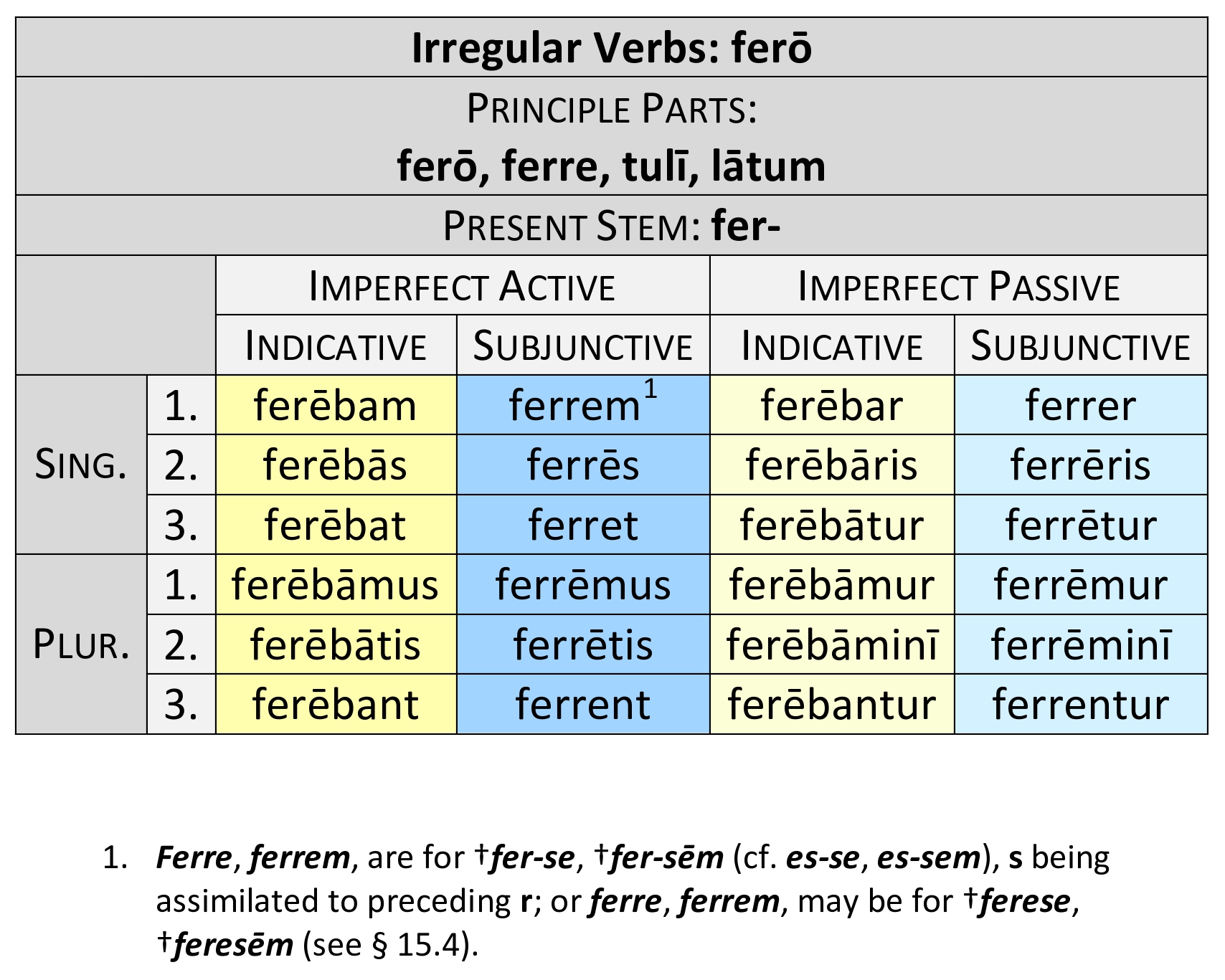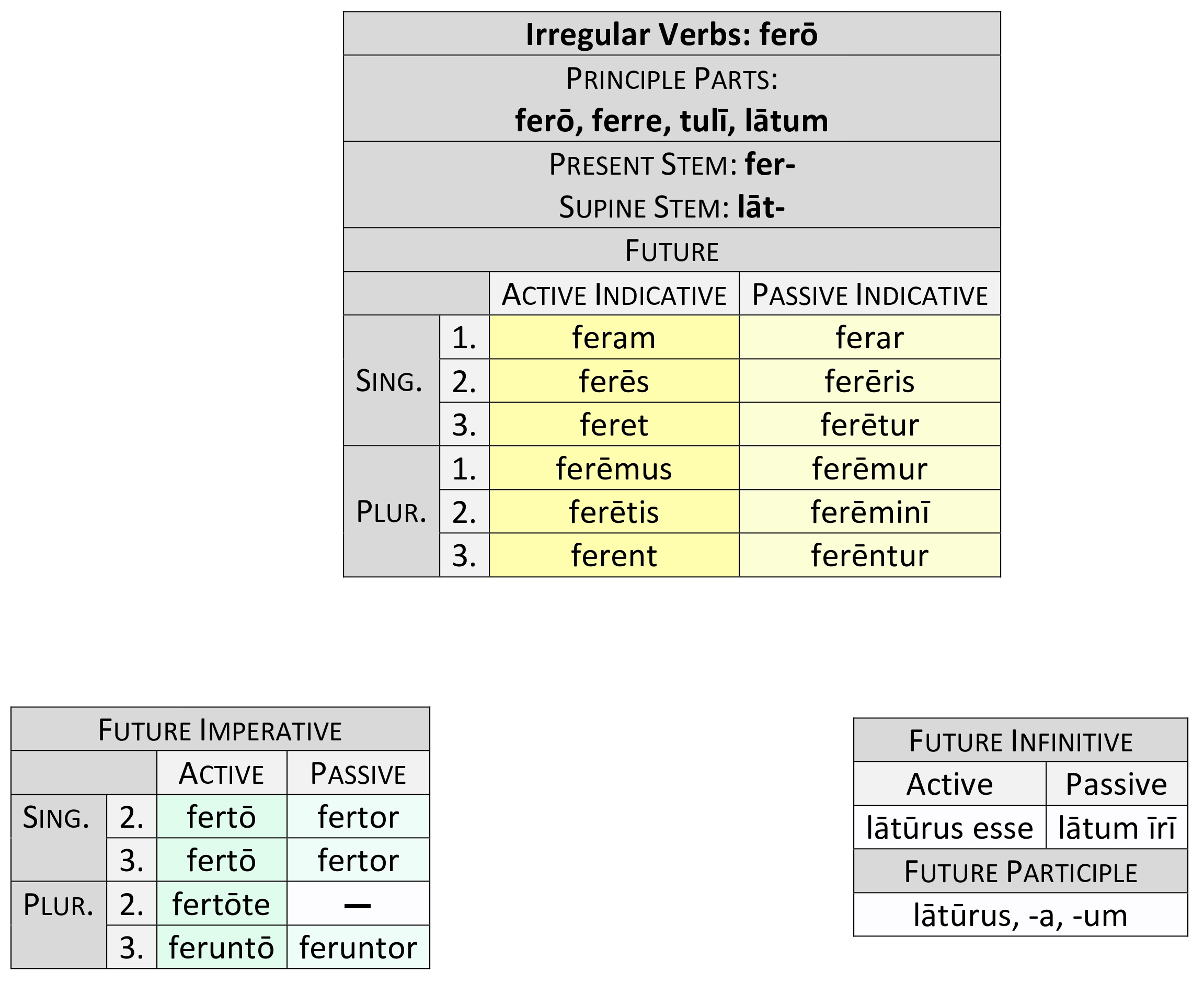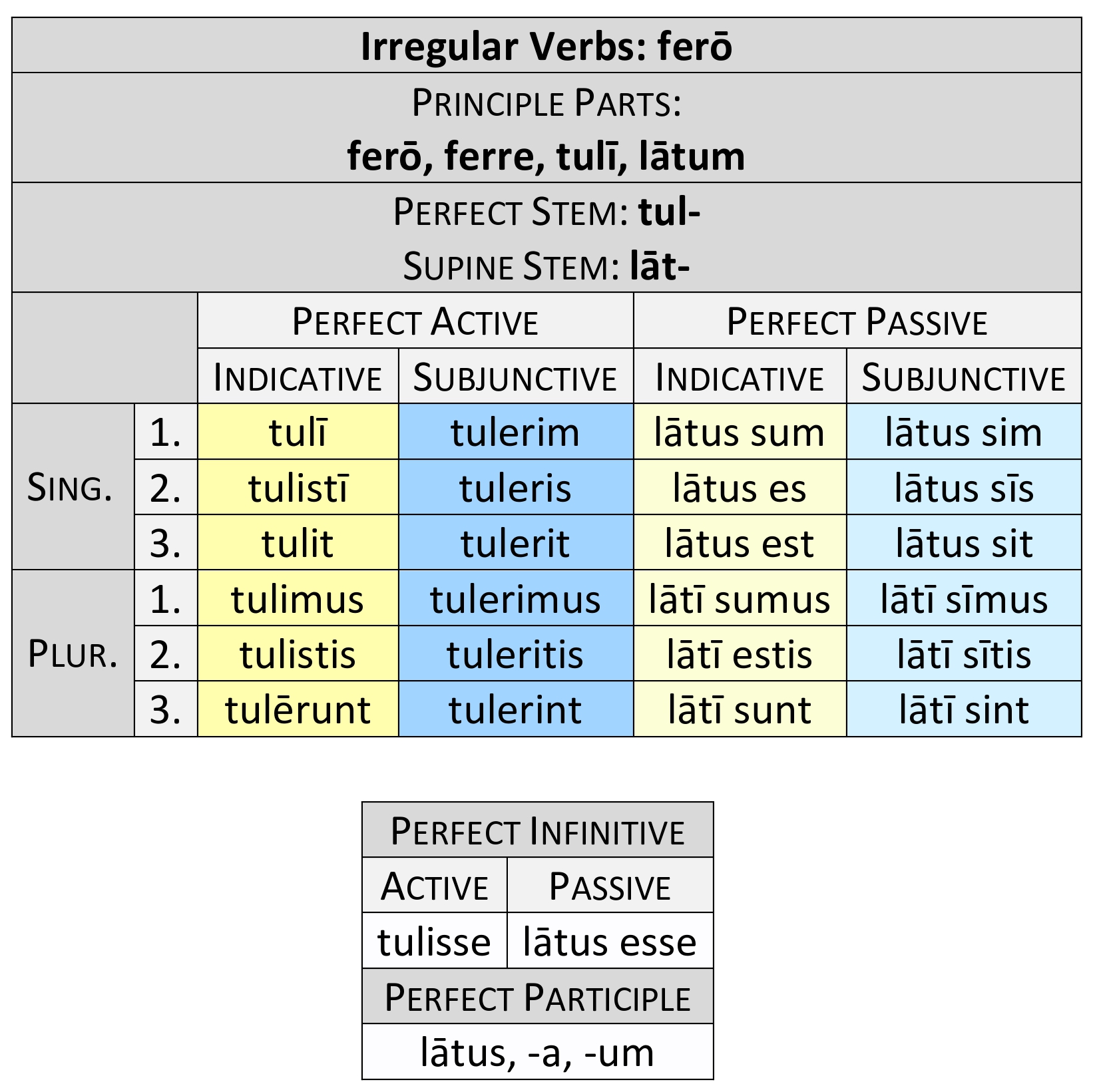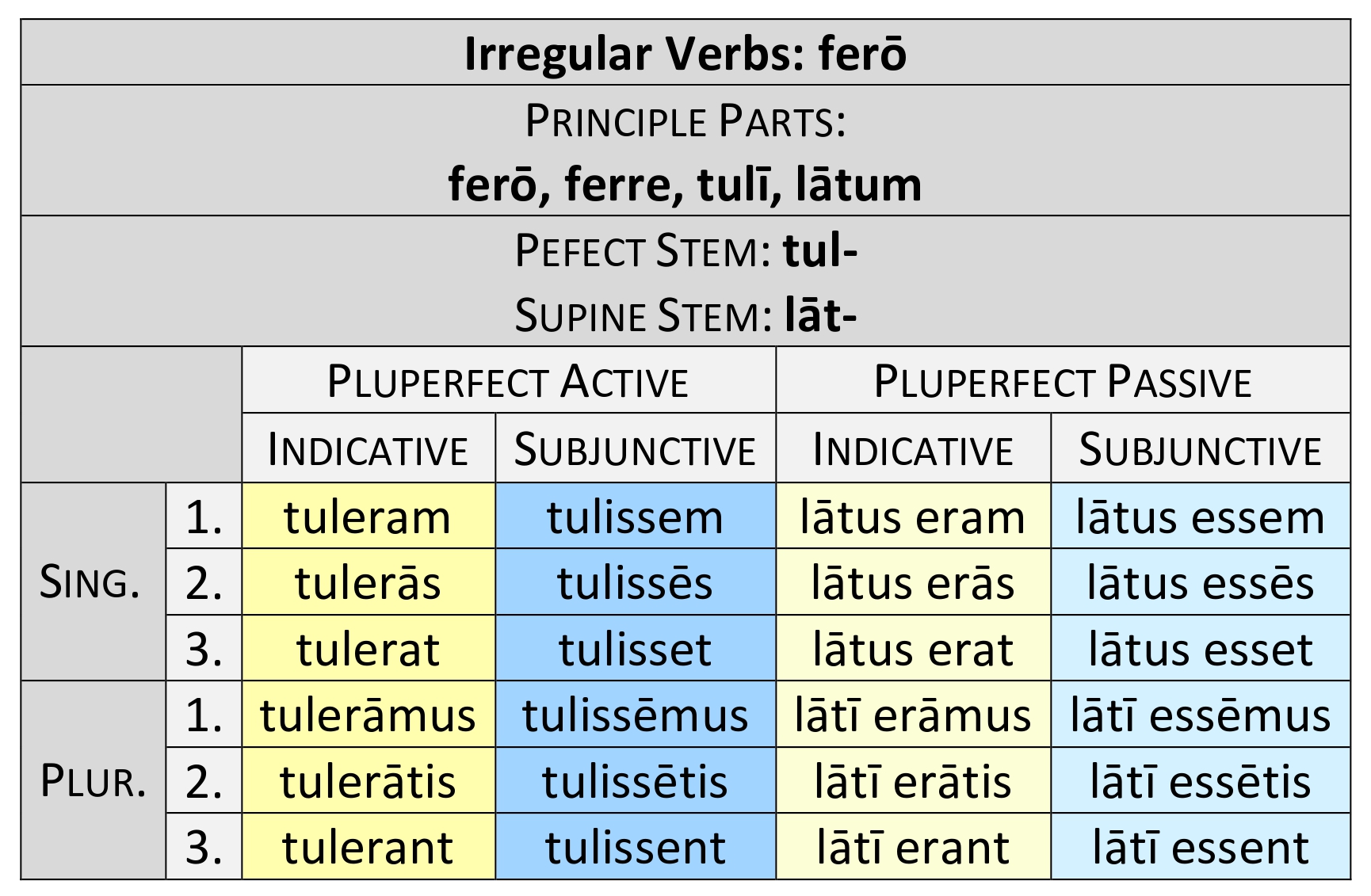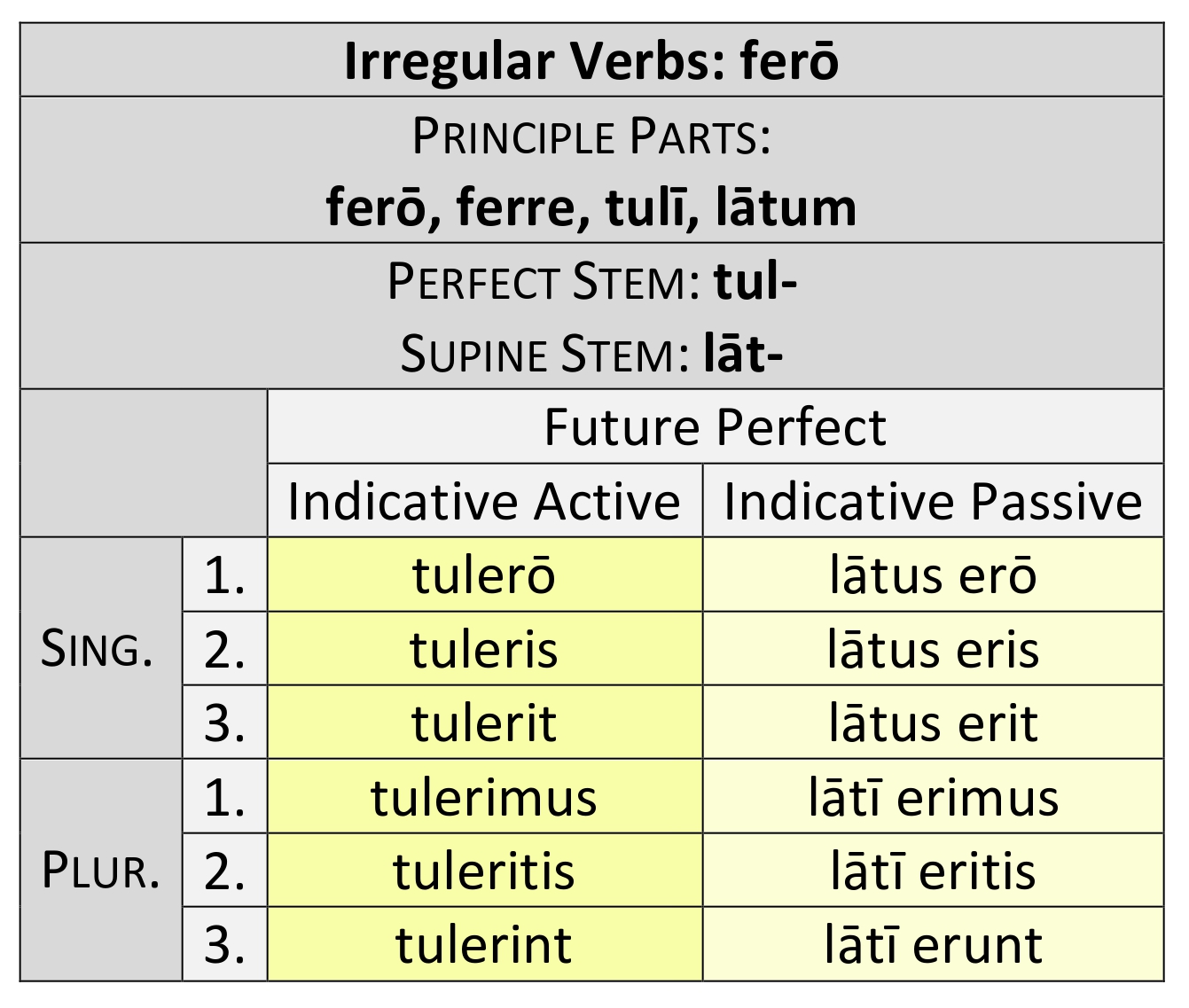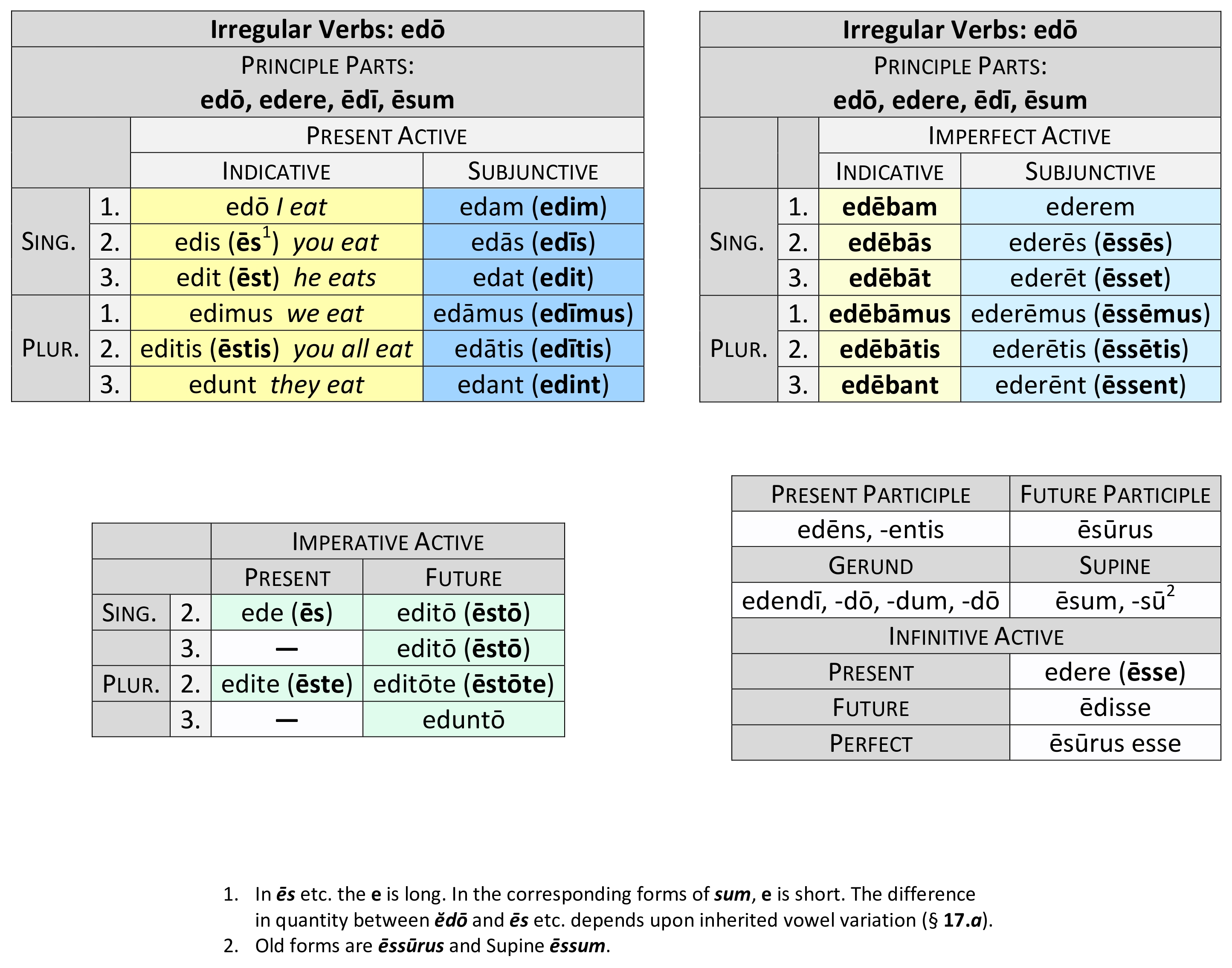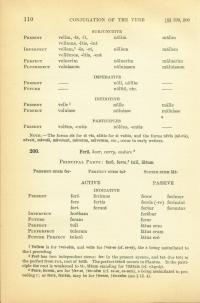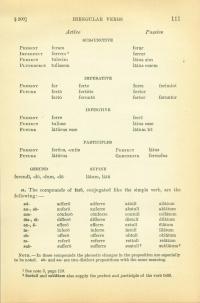200.
a. The compounds of ferō, conjugated like the simple verb, are the following.
| ad- | adferō | adferre | attulī | allātum |
| au-, ab- | auferō | auferre | abstulī | ablātum |
| con- | cōnferō | cōnferre | contulī | collātum |
| dis-, dī- | differō | differre | distulī | dīlātum |
| ex-, ē- | efferō | efferre | extulī | ēlātum |
| in- | īnferō | īnferre | intulī | illātum |
| ob- | offerō | offerre | obtulī | oblātum |
| re- | referō | referre | rettulī | relātum |
| sub- | sufferō | sufferre | sustulī1 | sublātum |
Note—In these compounds the phonetic changes in the preposition are especially to be noted. ab- and au- are two distinct prepositions with the same meaning.
201. Edō, edere, ēdī, ēsum (eat) is regular of the 3rd conjugation, but also has an archaic present subjunctive and some alternative forms directly from the root (ED), without the thematic vowel. These are in bold-faced type.
a. In the passive the following irregular forms occur in the third person singular.
Present Indicative ēstur
Imperfect Subjunctive ēssētur

